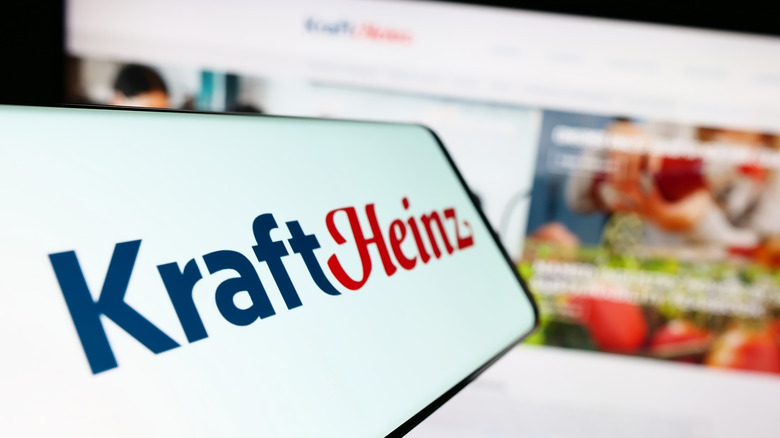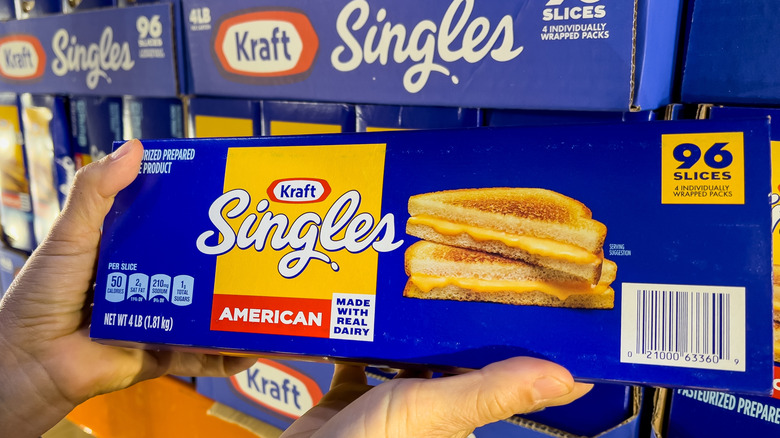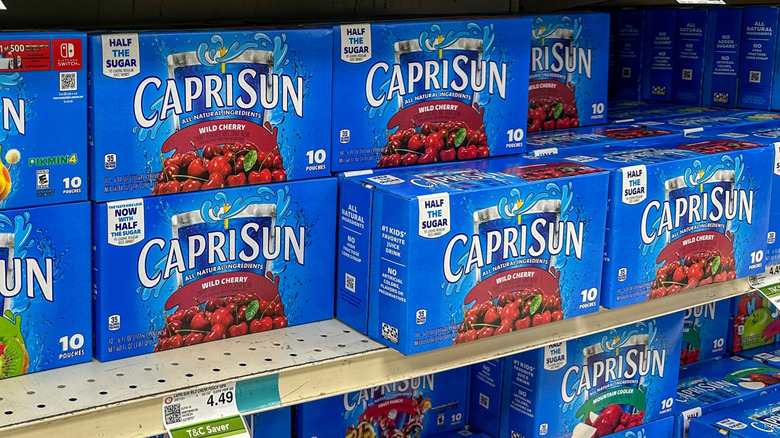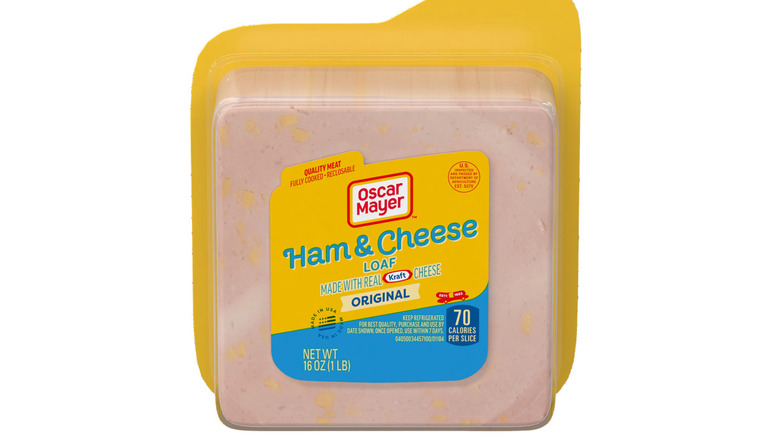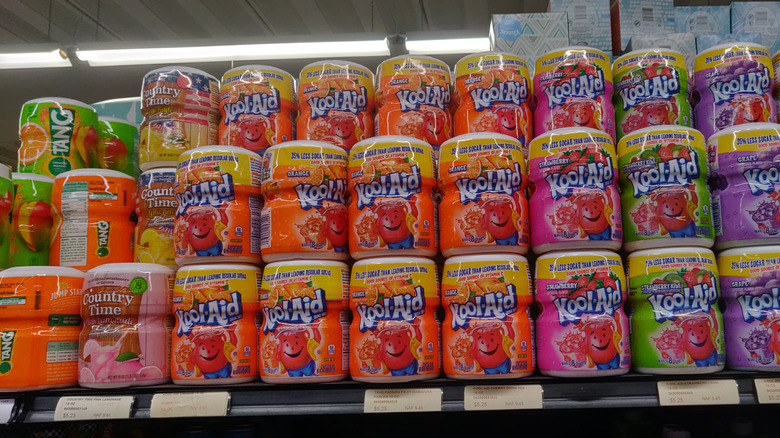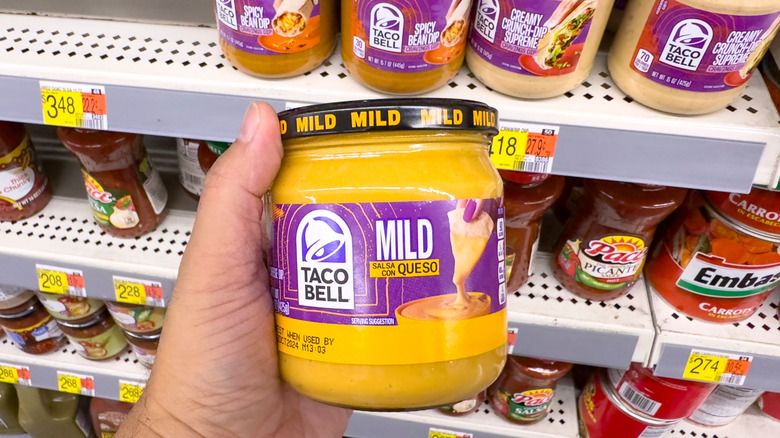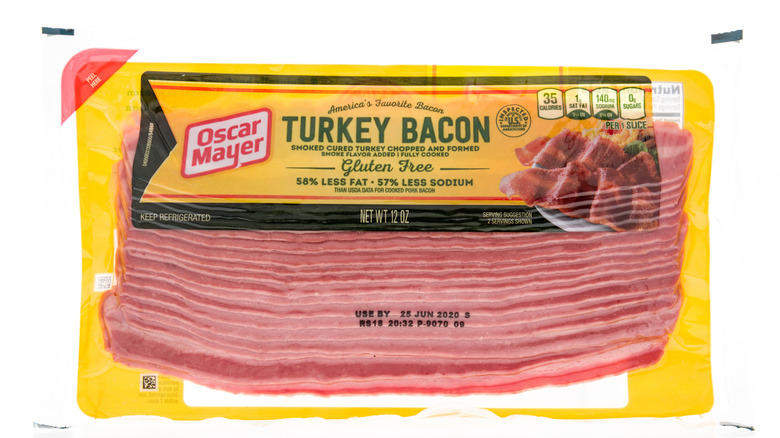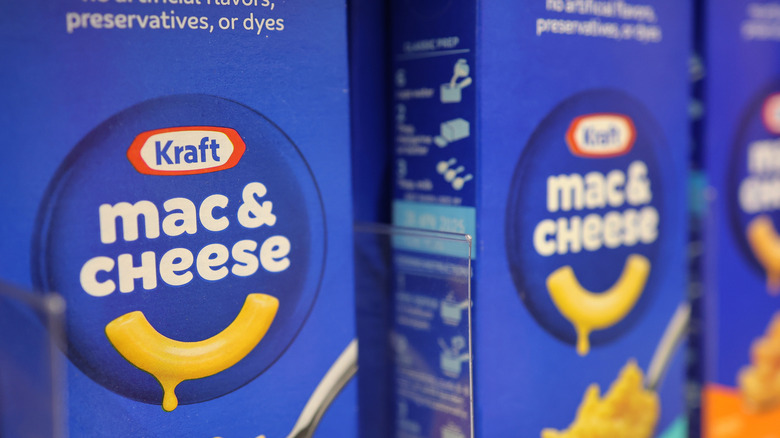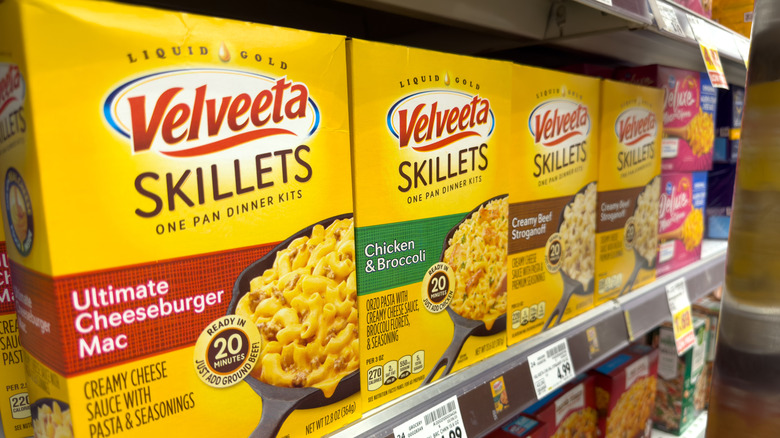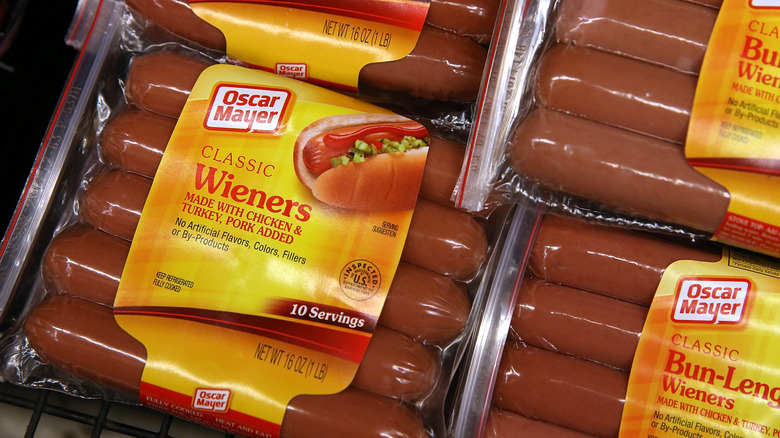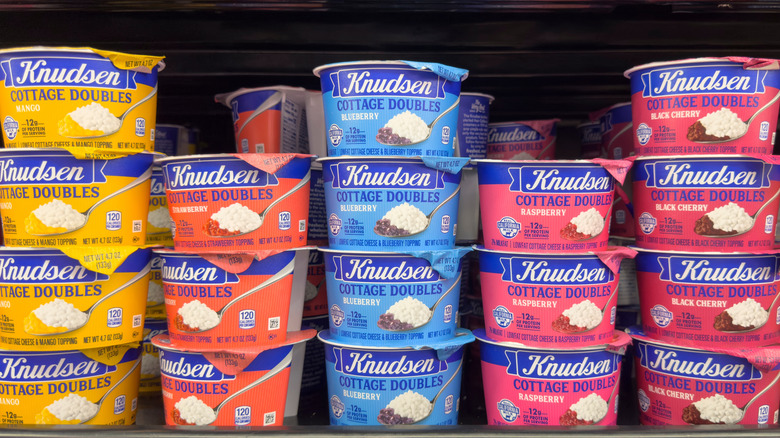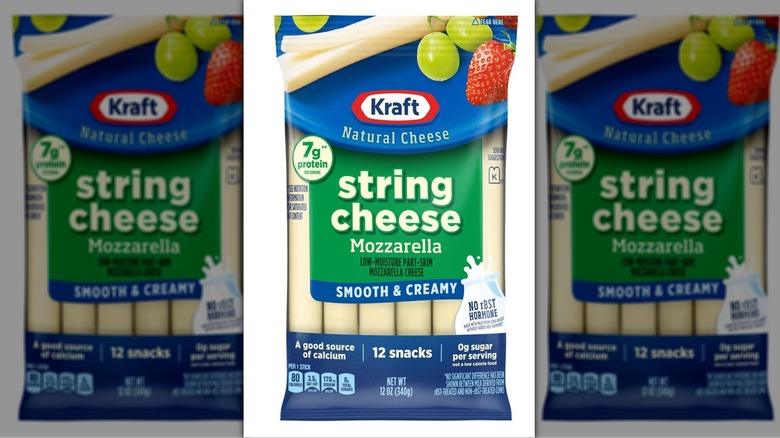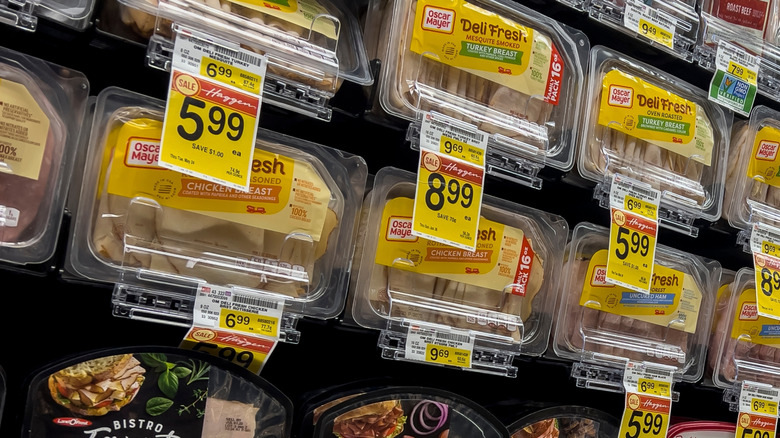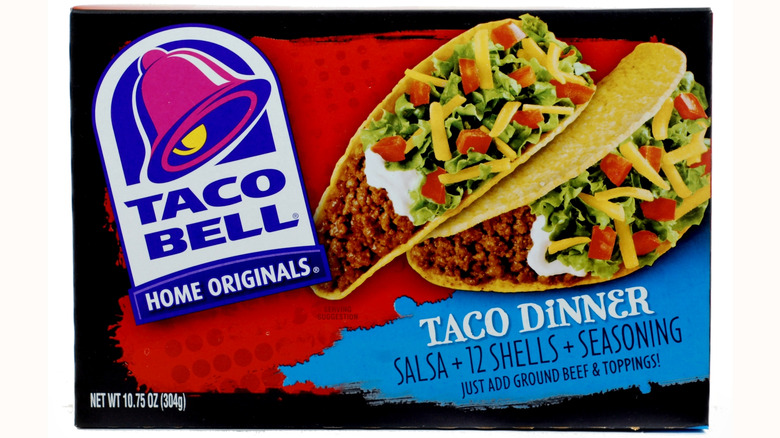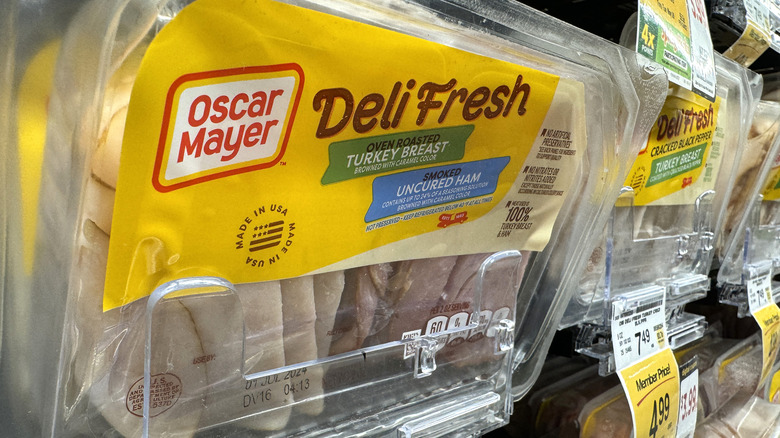The Biggest Recalls In Kraft Heinz History
Kraft Heinz is one of the biggest food and beverage manufacturers in the United States (third) and the world (fifth). It has over 200 brands and diverse food products that range from frozen meats to cheeses to juice boxes.
To put into context how massive Kraft Heinz is, consider that it is a merger of two well-known food processing companies that have been in business for well over a century. Heinz was founded in 1869 in Pennsylvania by Henry John Heinz; Kraft in 1903 in Chicago by James L. Kraft. Both companies grew exponentially since, going global, acquiring other brands, and expanding product lines. Finally, in 2015, the companies entered into a merger and became Kraft Heinz. It currently has an impressive portfolio of famous brands and products that are staples in homes worldwide. Given the sheer number of products it manufactures, it is unsurprising that Kraft Heinz has had major product recalls over the years.
Recalls happen when a manufacturer or regulatory body discovers problems with the preparation, packaging, storage, and other segments of production that might compromise food quality and consumer safety. Kraft Heinz has declared its commitment to providing customers with safe, top-quality food, and so it issues recalls for products that don't meet its quality and safety standards. Here are the biggest product recalls in history before and after Kraft Heinz's merger.
83,800 cases of cheese slices were recalled in 2023
The latest major Kraft Heinz recall was for the Kraft Singles American cheese slices. The problem lay in the packaging. One of the wrapping machines that processed the affected batches had a temporary issue that caused the packaging defect. Kraft Heinz became aware of the problem after it received complaints that a thin piece of clear plastic remained when customers unwrapped the cheese slices. The company's voluntary recall pulled out 83,800 cases of various multipacks of Kraft Singles American cheese slices.
Packaging defects in processed food are a serious matter because they can become health hazards (in this case a choking hazard) for customers. A person can gag from accidentally swallowing a small piece of transparent plastic wrap, for example. Fortunately, there had been no reports of serious health issues resulting from this particular incident.
5,760 cases of juice drinks were recalled in 2022
Anyone would agree that chemical contamination in food is a serious health risk and would justify the immediate removal of food products off the shelves. The same thing happened with the Capri Sun Wild Cherry Flavored Juice Drink Blend three years ago.
Customers reported that the Capri Sun juice they purchased tasted different, leading Kraft Heinz to discover that a diluted solution used for cleaning machines in food processing factories may have been mixed into the Capri Sun beverages by accident. The company immediately issued a voluntary recall and tasked sellers to remove the affected 6.6-ounce foil pouches off the shelves. Thanks to quick action, there were no reports of hospitalizations or adverse health reactions brought on by the recalled beverages.
2,400 pounds of processed meat were recalled in 2022
One of Kraft Heinz's sub-brands, Oscar Mayer, was founded 142 years ago and is no stranger to product recalls. The latest was in 2022 when the company pulled out 2,400 pounds of the Ham and Cheese Loaf from shelves because of suspected cross-contamination.
According to the USDA announcement, the recalled meatloaf was sliced using a machine that had been used to cut underprocessed or uncooked food. This wouldn't have been an issue if the machine was cleaned before it was used for the Oscar Mayer Ham and Cheese Loaf. Unfortunately, it wasn't, leading to concerns of cross-contamination.
Having uncooked components in food advertised as fully cooked is a health risk. Raw meat may contain bacteria, parasites, and other disease-bearing organisms. Fortunately, there were no reports of health concerns due to accidental consumption of the recalled Oscar Mayer products.
41 varieties of beverages and powdered drinks across four brands were recalled in 2021
Finding bits of glass and metal in fruit drinks advertised for children would strike terror in the hearts of many parents and guardians. Avid customers of Country Time, Tang, Kool-Aid, and Arizona Tea found themselves in this situation in 2021. Forty-one flavors and varieties of powdered and ready-to-drink beverages were recalled after a production quality check revealed that several batches of powdered and liquid beverages might have been contaminated with bits of glass and metal. The flavors and brands affected included the Arizona Arnold Palmer, Country Time Lemonade and Pink Lemonade, Tang Orange, Tang Guava-Pineapple, Kool-Aid Strawberry Cherry and Raspberry Lemonade, and Kool-Aid Tropical Punch.
Kraft Heinz worked with retailers in the U.S. to remove the batches specified in the recall. The affected inventory also reached Canada. The good news was that no reports of injuries or illnesses resulting from this issue emerged.
Kraft Heinz also issued a follow-up recall the following year after it was found that some of these recalled products were accidentally shipped out again to retailers. Kraft Heinz assured the public that this was an isolated incident, and they quickly recalled the affected powdered drinks again.
9,500 cases of cottage cheese were recalled in 2019
If your store-bought cottage cheese looks anything other than soft, creamy white, and you find solids not advertised in the packaging, you can assume it's been contaminated or has already gone bad. A customer who found pieces of red plastic and metal in a container of Blackstone's cottage cheese thought the same. Thanks to their report, Kraft Heinz voluntarily recalled three varieties of Breakstone's cottage cheese: the 16-ounce 2% Milkfat Lowfat Large Curd Cottage Cheese, the 24-ounce 4% Milkfat Large Curd Cottage Cheese, and the 24-ounce Milkfat Small Curd Cottage Cheese.
This recall happened before Kraft Heinz sold Breakstone's to France's Lactalis Group in 2021. There were no reports of customer injuries related to this contamination issue, but Kraft Heinz still pulled out the affected batches. Precaution was necessary because the foreign materials could leave lacerations and contusions in the mouth and digestive tract if swallowed. Such injuries can also lead to hemorrhage, infection, and major digestive health issues.
7,000 cases of salsa cheese dip were recalled in 2018
Little else beats a cheesy queso dip when looking for something tasty to pair with nachos. But what if its texture and overall appearance look a little odd? This was a question Kraft Heinz didn't want customers to wonder about. The company recalled 7,000 cases or nearly 56,000 pounds of the Taco Bell Salsa Con Queso Mild Cheese Dip after it received reports of "product separation" in the sealed bottles.
Product separation happens when the liquid component in processed food separates from the solids. It's a natural occurrence for certain food items like natural peanut butter, but not for queso dip. Product separation in this product is a health hazard because it can increase the risk of Clostridium botulinum bacteria growing inside the bottle. This bacteria causes botulism, a disease that can turn deadly with the spread of the poisonous botulin toxin. In worst-case scenarios, patients who ingest the toxin may experience blurred vision, difficulty speaking and breathing, constipation, muscle weakness, paralysis, and eventual death.
In light of these risks, Kraft Heinz warned customers who may have bought the recalled Taco Bell queso dip not to consume it even if it looked or smelled OK. Thankfully, there were no reports of customers showing the dreaded symptoms of botulism as a result of this incident.
Over 2 million pounds of turkey bacon were recalled in 2015
The biggest product recall for Oscar Mayer happened in 2015 when Kraft Heinz ordered the removal of more than 2 million pounds of the 56-ounce Oscar Mayer Selects Uncured Turkey Bacon and Oscar Mayer Turkey Bacon: Smoked Cured Turkey Chopped and Formed in 36-ounce and 48-ounce packages.
The reason for the recall? Suspected premature spoilage. Kraft Heinz feared certain batches of bacon would turn bad earlier than their use-before date.
According to the FSIS announcement, Kraft Heinz received some complaints of customers getting sick after eating some of its bacon products. These reports likely prompted the internal audit and product quality check that soon led to this massive recall. Oscar Mayer bacon packages were removed from grocery stores all over the country, as well as in the Bahamas and St. Martin, where the affected products had already been exported.
242,000 cases of macaroni and cheese were recalled in 2015
Mac and cheese is a widely-loved comfort food, so you can imagine the turmoil when news broke out that certain batches of this beloved Kraft product (those bearing the code "C2" in the best-by information) had to be recalled because they may have contained bits of metal.
This happened 10 years ago after Kraft Foods (before it merged with Heinz) confirmed eight incidents of customers finding metal contaminants in their Kraft Macaroni and Cheese. Fortunately, no injuries or serious health problems occurred because of this contamination problem. The company went on to remove 242,000 cases or a whopping 6.5 million boxes of the affected batches off grocery shelves nationwide and abroad. Kraft Heinz did not give details about the cause of the contamination.
1.77 million pounds of pasta and ground cheeseburger were recalled in 2014
Kraft likely faced a public relations nightmare 10 years ago, because just a year before the double-whammy of the turkey bacon and macaroni and cheese recalls, the company had to recall more than 1.7 million pounds of the Velveeta Cheesy Skillets Singles Ultimate Cheeseburger Mac.
The microwaveable pasta-with-ground-beef meal was recalled because of a mislabeling issue. The product contained soy, which is one of the USDA's Big 9 leading causes of food allergies in the country. Unfortunately, the product label did not include this ingredient or mention that it contained a possible allergen. Kraft Heinz had to address this issue quickly because people who suffer severe allergic reactions from soy could be at risk. No adverse reactions to the Velveeta meal were reported, but the recall had to happen because labelling mistakes must be corrected.
Kraft routinely conducts quality checks of its products, and it was during one of these procedures that they discovered the undeclared allergen in the Velveeta cheeseburger mac meal. The company suspected an accidental mix-up of the ingredient lines with its label supplier. Kraft Foods reported the matter to the FSIS and promptly initiated the recall.
96,000 pounds of wieners were recalled in 2014
Oscar Mayer has a wide variety of hotdog products, and two of them were subject to a product recall because of a major labeling mishap. On April 18, 2014, Kraft Foods received a customer complaint that the Oscar Mayer Classic Wieners packages contained Classic Cheese Dogs instead. The company notified the USDA the following day about the packaging error and later issued a recall for the affected batches of wieners and cheese dogs.
Kraft Foods recalled 96,000 pounds of the 16-ounce Classic Wieners Made with Turkey and Chicken, Pork Added, as well as the 16-ounce packages of Classic Cheese Dogs Made with Turkey and Chicken, Pork Added, and Pasteurized Cheese Product.
The switched labels were more than an issue of inconvenience. Proper labeling is crucial for food safety, especially in this case because milk, the key ingredient for the pasteurized cheese in Oscar Mayer cheese dogs, is an allergen. This recall highlights the importance of correct labels in warning consumers about the potential health risks of certain processed foods. Thankfully, even though at least one customer had accidentally eaten the cheese dogs, no other customer reported having adverse reactions due to the labeling error.
1.2 million cases of cottage cheese were recalled in 2014
Sometimes, despite every effort to ensure food is produced safely and up to standards, product quality is compromised because of external factors beyond a manufacturer's control. Mistakes that occur during the sourcing of ingredients are perfect examples.
Something similar happened to Kraft's cottage cheese products over 10 years ago. The company discovered that some ingredients used in making cottage cheese for Knudsen, Breakstone's, Simply Kraft, and Daily Chef were stored at a facility that didn't meet Kraft Heinz's temperature requirements. The company became worried that the cottage cheese produced from the badly-stored ingredients would spoil early or cause illnesses. It is unknown if any customers became ill from eating the affected products.
In line with its commitment to upholding high standards of food quality and safety, Kraft Foods pulled 1.2 million cases of the affected cottage cheese products. This was a massive recall that took 34 packaging variations and flavors off the shelves of retail stores and distribution centers in the country.
735,000 cases of string cheese were recalled in 2013
The cottage cheese recall wasn't the only premature spoilage Kraft foods had to deal with. The company also recalled 735,000 cases of 22 varieties of Kraft and Polly-O string cheese one year earlier, after receiving customer complaints that the products went bad and changed color before their use-by dates had passed.
Apart from ordering the recall, Kraft Foods temporarily stopped its production and distribution operations to investigate the issue. The company also warned customers who had already bought the affected string cheese not to eat them and bring them back in-store for a refund instead. Like with the cottage cheese recall, it is not known if any customers suffered health issues after eating string cheese that should have been part of the recall.
2.8 million pounds of packaged chicken products were recalled in 2007
The biggest recall in Kraft Foods' history happened in 2007 after one package of the ready-to-eat Oscar Mayer/Louis Rich Chicken Breast Strips Grilled tested positive for Listeria monocytogenes. Upon learning the news, one of Kraft Foods' suppliers, Carolina Culinary Food, initiated a small-scale recall of the affected product.
For its part, Kraft Foods decided to take precautionary measures and expanded the recall to include eight flavors and package varieties of the Oscar Mayer/Louis Rich Chicken Breast Strips and Cuts. The total recall volume reached 2.8 million pounds.
Why did Kraft Foods voluntarily remove such a large volume of products off retailers' shelves nationwide? Listeria is a type of bacteria typically found in sewers, soil, and decaying matter. It can lead to listeriosis, a deadly disease that can cause miscarriages and even death among children, seniors, and people with weakened immune systems. Fortunately, there were no reports of customers showing signs of listeriosis or any health problems due to eating the affected products.
This is the second recall Kraft Foods issued related to listeria. The first incident happened in 1999, which you can read more about below.
Taco shells in stores and Taco Bell restaurants were recalled in 2000
Bio-engineered food and the ethics of using it in food manufacturing had been a popular topic of debate in the early 2000s. Coincidentally, Taco Bell faced controversy for this very reason at the start of the decade.
Here's what went down in the year that led to one of the biggest recalls in Taco Bell history. An anti-biotech group called Friends of the Earth tapped an independent laboratory in Iowa to test seven boxes of Taco Bell shells sold in grocery stores. They reportedly found traces of StarLink corn, a genetically modified corn variety that hasn't been approved for human consumption. The main concern was that the human body couldn't easily digest a protein found in StarLink (Cry9C). Moreover, it might trigger allergic reactions in some people.
There had been no reports of adverse allergic reactions tied specifically to Taco Bell and the alleged GMO ingredient, but the controversy pushed Kraft Foods to take action. The company was the manufacturer of Taco Bell's grocery taco shells, and it soon called for the immediate recall of the 12-shell and 18-shell packages of Taco Bell Home Originals. Official statements didn't report the total volume pulled, but the number is likely high since this was a nationwide recall.
28,313 pounds of deli meat were recalled in 1999
Last but not least in this list is the 1999 recall of Oscar Mayer deli meats, thanks again to listeria contamination. The Kraft Foods brand pulled 28,313 pounds of the Oscar Mayer All American Variety Pack and Oscar Mayer Club Sandwich Variety Pack after a woman in Missouri fell ill with listeriosis. Fearing an outbreak, the USDA tested Oscar Mayer products and found listeria in these two package types of mixed deli meats. Fortunately for Kraft Foods and its customers, none had reported symptoms of listeria or fell ill due to the allegedly contaminated deli meats.
Food manufacturers suffer financial losses whenever issuing recalls. But companies need to take responsibility as producers to provide customers with clean, well-prepared, high-quality food.
